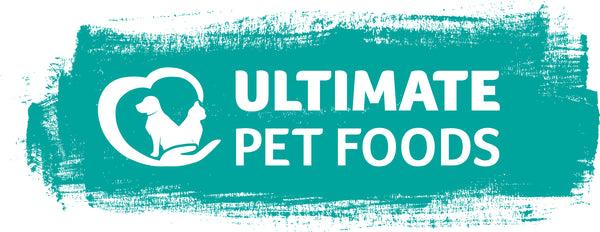
Complete Guide to Hypoallergenic Dog Diets
Share
Did you know that up to 20 percent of dogs suffer from food allergies or sensitivities? These reactions can leave your pet with itchy skin, upset stomachs, and even long-term health problems. Choosing the right diet makes all the difference for dogs prone to allergies. Learn how hypoallergenic dog foods use unique ingredients and proteins to offer safe, nourishing meals while helping sensitive pups feel their best.
Table of Contents
- What Are Hypoallergenic Dog Diets?
- Types of Hypoallergenic Foods for Dogs
- Common Allergens and Ingredient Choices
- Health Benefits and Nutritional Value
- Selecting Safe, Effective Hypoallergenic Diets
Key Takeaways
| Point | Details |
|---|---|
| Hypoallergenic Diets | Specialized nutrition plans designed to minimize allergic reactions in dogs with sensitive systems using novel protein sources and eliminating common allergens. |
| Types of Diets | Hypoallergenic foods fall into three categories: novel protein, hydrolysed protein, and limited ingredient diets, each tailored to reduce allergenic response. |
| Common Allergens | Frequent allergens include beef, dairy, wheat, and chicken; hypoallergenic diets suggest alternative proteins and carbohydrate sources. |
| Selecting Diets | Consult with a veterinarian for personalized hypoallergenic diet plans, conducting thorough ingredient analysis and tracking symptoms effectively. |
What Are Hypoallergenic Dog Diets?
Hypoallergenic dog diets are specialized nutrition plans designed to minimise allergic reactions and support dogs with sensitive digestive systems. According to the PDSA, these diets are carefully formulated to reduce the risk of triggering food sensitivities by using novel protein sources and eliminating common allergens.
These diets typically feature unique characteristics that set them apart from standard dog foods. Key features include:
- Using single or limited protein sources
- Avoiding common allergens like wheat, soy, and dairy
- Incorporating easily digestible ingredients
- Utilising hydrolysed proteins that are broken down into smaller molecules
Our guide on understanding dog food for allergies provides deeper insights into how these specialised diets work. By selecting our freshly prepared, gentle-cooked kibble with human-grade ingredients and prebiotics MOS and FOS, dog owners can provide a nutritionally complete meal that supports digestive health and reduces potential allergic responses.

Types of Hypoallergenic Foods for Dogs
According to the PDSA, hypoallergenic dog foods come in three primary categories, each strategically designed to minimise allergic reactions and support canine digestive health: novel protein diets, hydrolysed protein diets, and limited ingredient diets.
Let’s break down these different types:
Here’s a comparison of the main types of hypoallergenic dog foods:
| Type of Diet | Key Protein Source | Main Features |
|---|---|---|
| Novel Protein | Duck Venison Kangaroo |
Uncommon proteins Reduces immune response |
| Hydrolysed Protein | Chemically processed | Proteins broken into small molecules Minimises allergens |
| Limited Ingredient | Single protein Single carbohydrate |
Simple recipes Fewer potential allergens |
- Novel Protein Diets: These use protein sources your dog has never consumed before, such as venison, duck, or kangaroo, reducing the likelihood of triggering an immune response
- Hydrolysed Protein Diets: Proteins are chemically broken down into smaller molecules, making them less likely to cause an allergic reaction
- Limited Ingredient Diets: Contain fewer ingredients, typically with a single protein and carbohydrate source to minimise potential allergen exposure
For dog owners seeking comprehensive insights, our guide on understanding the best dog food for sensitive dogs offers deeper exploration.
Our freshly prepared, gentle-cooked kibble with human-grade ingredients and prebiotics MOS and FOS provides a nutritionally balanced solution that supports digestive health while addressing potential food sensitivities.
Common Allergens and Ingredient Choices
According to the PDSA, dogs can develop sensitivities to several common food ingredients, with protein sources being the primary culprits of allergic reactions. The most frequent allergens include beef, dairy, wheat, and chicken, which can trigger uncomfortable digestive and skin responses in sensitive dogs.
To combat these allergies, hypoallergenic diets recommend alternative ingredients that are less likely to cause adverse reactions:
- Alternative Proteins: Duck, venison, lamb, or fish
- Carbohydrate Alternatives: Sweet potatoes, pumpkin, or rice
- Low-Reactivity Ingredients: Novel protein sources not previously encountered by the dog
- Grain-Free Options: Using alternative starches to reduce potential wheat-related sensitivities

For dog owners seeking more detailed guidance on navigating ingredient choices, our guide on what ingredients to avoid in dog food provides comprehensive insights. Our freshly prepared, gentle-cooked kibble uses human-grade ingredients and prebiotics MOS and FOS, ensuring a nutritionally balanced diet that minimises the risk of triggering food sensitivities.
Health Benefits and Nutritional Value
According to the PDSA, hypoallergenic diets offer significant health advantages by addressing underlying nutritional sensitivities and promoting overall canine wellness. These specialised diets can alleviate troubling symptoms like persistent itching, digestive discomfort, and skin irritations that often result from food-related allergies.
The key health benefits of hypoallergenic diets include:
- Improved Digestive Health: Reducing inflammatory responses in the gastrointestinal tract
- Enhanced Skin Condition: Minimising allergic dermatitis and coat problems
- Strengthened Immune System: Supporting the body’s natural defence mechanisms
- Reduced Inflammation: Helping manage chronic inflammatory responses
While exploring nutritional strategies, our guide on understanding raw vs kibble dog food provides additional insights. Our freshly prepared, gentle-cooked kibble with human-grade ingredients and prebiotics MOS and FOS ensures a nutritionally balanced approach that supports your dog’s health while addressing potential dietary sensitivities.
Selecting Safe, Effective Hypoallergenic Diets
According to the PDSA, selecting the right hypoallergenic diet requires a strategic and personalised approach. Consulting with a veterinarian is crucial to identify the most appropriate nutritional strategy tailored to your dog’s specific health needs, allergies, and sensitivities.
Key considerations when choosing a hypoallergenic diet include:
- Comprehensive Ingredient Analysis: Identifying and eliminating potential trigger ingredients
- Professional Veterinary Guidance: Conducting thorough allergy testing and dietary assessments
- Gradual Dietary Transition: Implementing slow, monitored changes to prevent digestive stress
- Symptom Tracking: Observing and documenting your dog’s response to dietary modifications
For pet owners seeking a structured approach to managing food sensitivities, our guide on the elimination diet for dogs provides comprehensive insights. Our freshly prepared, gentle-cooked kibble with human-grade ingredients and prebiotics MOS and FOS offers a nutritionally balanced solution that supports your dog’s unique dietary requirements while minimising potential allergic reactions.
Support Your Dog’s Health with Tailored Hypoallergenic Nutrition
If your dog struggles with allergies or food sensitivities, finding the right diet is a top priority to ease itching, digestive issues and discomfort. The Complete Guide to Hypoallergenic Dog Diets reveals how novel proteins, limited ingredients and grain-free options can transform your pet’s wellbeing. Now you can take confident steps towards better health with our carefully crafted, natural recipes that focus on reducing allergens without compromising nutrition.

Explore our range of Dry Dog Food | Grain-Free & Science-Backed Kibble designed to support sensitive digestion and skin health. For smaller breeds with delicate needs, our Small Breed Grain Free Dog Food | Freshly Prepared & Natural offers tailored nutrition made from fresh, human-grade ingredients. Visit Ultimate Pet Foods today to provide your dog with a hypoallergenic diet that truly makes a difference and start your journey to a happier, healthier companion now.
Frequently Asked Questions
What are hypoallergenic dog diets?
Hypoallergenic dog diets are specialized nutrition plans designed to minimize allergic reactions and support dogs with sensitive digestive systems by using novel protein sources and eliminating common allergens.
What types of hypoallergenic dog foods are available?
Hypoallergenic dog foods primarily come in three categories: novel protein diets, hydrolyzed protein diets, and limited ingredient diets, each aimed at minimizing allergic reactions and supporting digestive health.
What are common allergens in dog food?
Common allergens for dogs include beef, dairy, wheat, and chicken. These ingredients are known to trigger digestive and skin reactions in sensitive dogs.
How can I select a safe hypoallergenic diet for my dog?
Selecting a safe hypoallergenic diet involves consulting with a veterinarian, analyzing ingredients to identify potential allergens, transitioning gradually to the new diet, and tracking your dog’s response to dietary changes.
Recommended
- 7 Best Hypoallergenic Dog Treats for Sensitive Pups – Ultimate Pet Foods
- What Ingredients to Avoid in Dog Food for Healthier Pups – Ultimate Pet Foods
- Understanding the Best Dog Food for Sensitive Dogs – Ultimate Pet Foods
- Understanding Dog Food for Allergies: A Comprehensive Guide – Ultimate Pet Foods
